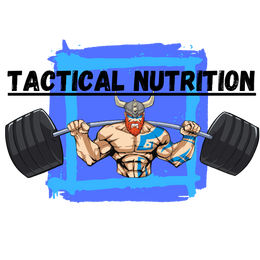Introduction
Protein is the cornerstone of recovery, performance, and resilience for athletes and tactical professionals alike. Whether you’re a firefighter finishing a long shift, a police officer training for duty fitness tests, or an athlete chasing performance goals, protein is what rebuilds muscles, supports recovery, and fuels progress. But one big question remains: should you choose whey protein or plant protein?
Both options provide high-quality nutrition, but they differ in origin, digestion, amino acid profile, and overall benefits. In this article, we’ll break down the differences, compare the research, and help you decide which is best for your needs as an athlete or first responder.
Understanding Whey Protein
Whey protein is derived from milk during the cheese-making process. It’s considered a complete protein, meaning it contains all nine essential amino acids that the body cannot produce on its own.
Whey protein is especially rich in leucine, the amino acid that triggers muscle protein synthesis—the process your body uses to repair and build muscle. This makes whey protein one of the fastest and most effective ways to recover after training or physically demanding shifts.
Benefits of Whey Protein:
-
Rapid digestion and absorption, making it ideal post-workout
-
High leucine content for maximizing muscle recovery
-
Widely studied and proven to increase lean muscle mass
-
Affordable and available in many flavors and blends
For athletes and first responders who need fast recovery and performance, whey protein is often considered the gold standard.
Understanding Plant Protein
Plant protein is made from sources like peas, rice, hemp, or soy. While individual plant proteins may lack one or more essential amino acids, modern plant-based blends combine multiple sources to create a complete amino acid profile.
Plant proteins are generally slower to digest than whey, which can provide a steady release of nutrients over time. They also offer additional benefits, such as fiber, minerals, and antioxidants, depending on the plant source.
Benefits of Plant Protein:
-
Dairy-free and suitable for lactose-intolerant or vegan athletes
-
Often easier on digestion for those sensitive to dairy
-
Provides additional nutrients and fiber from plant sources
-
Sustainable and environmentally friendly
For tactical professionals and athletes with dietary restrictions or who prefer plant-based eating, plant protein provides a strong alternative.
Whey vs. Plant Protein: Head-to-Head Comparison
1. Amino Acid Profile
Whey protein is naturally high in all essential amino acids, especially leucine, which plays the biggest role in muscle repair. Plant proteins can match this when blended correctly (such as pea and rice protein), but single-source plant proteins often fall short.
Winner: Whey protein (slight edge, unless plant blends are used).
2. Digestion and Absorption
Whey protein digests quickly, making it ideal for post-workout recovery when muscles are most primed for repair. Plant proteins generally digest slower, which can be beneficial for satiety or sustained release but less effective for immediate recovery.
Winner: Whey protein for recovery, plant protein for slower-release benefits.
3. Performance and Recovery
Research consistently shows whey protein enhances muscle protein synthesis and accelerates recovery after training. Plant proteins can provide similar benefits if taken in higher doses (to match leucine levels) or when blended.
Winner: Whey protein (with plant protein catching up when properly formulated).
4. Tolerance and Digestion Comfort
For athletes and first responders who are lactose-intolerant or sensitive to dairy, whey can cause bloating or discomfort. Plant protein is naturally lactose-free and often easier on digestion.
Winner: Plant protein for those with sensitivities.
5. Cost and Accessibility
Both whey and plant proteins are widely available. Whey is typically less expensive, but plant protein pricing has become more competitive as demand grows.
Winner: Whey protein for affordability, though plant protein is improving.
Which Protein Is Best for Athletes?
For most athletes, whey protein provides the most efficient recovery tool thanks to its rapid absorption and leucine content. Sprinters, powerlifters, and strength athletes often benefit most from whey.
However, endurance athletes or those with dairy sensitivities may prefer plant protein, especially if taken in higher amounts or blended formulations. Plant proteins can also provide digestive comfort during heavy training blocks.
Which Protein Is Best for First Responders?
First responders face unique demands—long shifts, irregular meals, and unpredictable stress. Whey protein provides a fast, convenient recovery option after training or physically demanding calls. Its quick absorption helps repair muscles when time is limited.
That said, many first responders struggle with digestion due to shift work and irregular eating schedules. For them, plant protein may be easier to tolerate and still provide sufficient recovery support. Those working night shifts may even prefer plant protein before rest, as its slower digestion supports overnight recovery.
The Bottom Line: Whey vs. Plant Protein
The truth is, both whey and plant protein can play a valuable role in performance nutrition.
-
Choose whey protein if you want the fastest recovery, maximal muscle growth, and the most research-backed results.
-
Choose plant protein if you’re lactose-intolerant, vegan, environmentally conscious, or prefer a slower-digesting protein source.
For many athletes and tactical professionals, the best approach may be to use both, depending on timing and needs. Whey protein immediately after training and plant protein during the day or before long shifts can provide well-rounded coverage.
Conclusion
The whey vs. plant protein debate doesn’t need a single winner. Both offer unique strengths, and both can support the needs of athletes and first responders. Whey protein remains the gold standard for rapid recovery and muscle growth, but plant protein provides a strong, versatile option for those who need or prefer a dairy-free alternative.
What matters most is consistency. Getting enough daily protein—from whey, plants, or a mix of both—is what truly drives progress. Whether you’re on the field, in the gym, or on the front lines of public safety, the right protein strategy ensures your body recovers, grows, and performs when it matters most.





